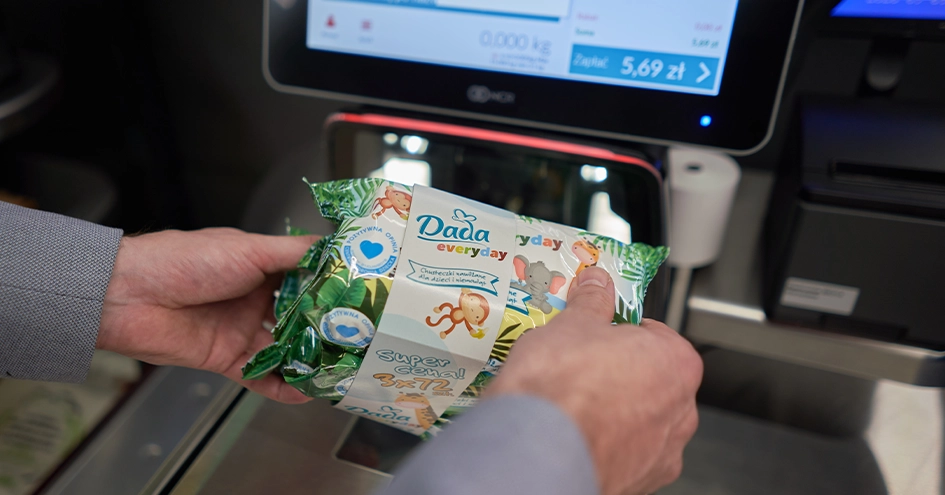Own workforce
The Group is committed to ensuring high standards of integrity and ethics, endeavouring to promote the dignity, respect and protection of all those who work with us. To this end, we respect human rights, the regulation in force in the countries where we operate and applicable international legislation and guidelines, including the Universal Declaration of Human Rights, the Conventions of the International Labour Organisation and the Organisation for Economic Co-operation and Development (OECD) and the Guidelines for Multinational Enterprises, among others.
In order to establish the standards of behaviour for all our structures, simultaneously acting as an ethical and deontological barometer by which employees must abide throughout their professional lifecycle in the Group, regardless of the hierarchical level in which they are, the function they perform or the country in which they work, we highlight the following policies:
- Code of Conduct
- Anti-Corruption Policy

To apply these principles in the regulations and processes of human resources management, we have global and local policies, of which we highlight the following:
- Labour Fundamentals Guidelines
- Guidelines for Preventing and Fighting Harassment and Discrimination
- Recruitment and Selection Policy
- Global Training Policy
- Performance Management Policy
- Health and Safety in the Workplace Policy
- Engagement Policy
The actions taken on material impacts, approaches to managing material risks and pursuing material opportunities and the effectiveness of these actions, related to our people, are described throughout the subsections of the section “Managing social topics”, including the resources allocated to the management of material topics.
Affected communities
The Jerónimo Martins Group is aware that, in the long term, a business’s sustainability is an inseparable component of the extended responsibility with which it is run and its active contribution to the well-being of the surrounding communities in the areas in which it has operations. The guidelines that shape how we manage the Group’s relationships with the communities affected by our activity, particularly with regard to the direct and indirect impacts of our operations, are reflected in our policies and codes:
- Policy of Support for Surrounding Communities
- Code of Conduct
- Sustainable Sourcing Policy
- Code of Conduct for Suppliers
- Whistleblowing Policy
As for the Policy of Support for Surrounding Communities, although the application of this policy is a guideline, some Companies adapt it according to the specificities of their business and the countries in which they operate.
Regarding the procedures and service instructions for providing this support to the community, food donations comply with specific procedures aimed at preventing food waste, including the appointment of people responsible for processing the products and delivering them to the institutions. Both Biedronka and Pingo Doce have processes in place to collect food in stores for the charities they support. Biedronka also has a procedure for awarding donations which includes information on the types of eligible donations and sponsorships, the required documentation, those responsible for organising the donation process, data reports, and a social impact assessment.
Pingo Doce prioritises its work with local communities of which it is a part to address social emergencies, food shortages, and isolation and loneliness among older adults, and the promotion of children’s literature.
In Colombia, Ara has defined collaboration against food insecurity, especially among children, as an absolute priority¸ working with various institutions and social organisations to combat malnutrition, to promote healthy habits and lifestyles, care for children and support mothers, families and communities. The Company has also developed specific donation procedures to reduce food waste, not only through direct donations to non-profit organisations, but also by supporting the implementation of a digital platform that connects companies wishing to donate surpluses to food banks and community support institutions.

Hebe, which specialises in health and beauty products and services, carries out initiatives in the surrounding communities targeting specific audiences, from vulnerable groups, such as young people ageing out of foster care and entering adulthood, women who want to build their own online business or young people with disabilities who dream of singing professionally.
The Code of Conduct establishes support for surrounding communities as a fundamental pillar of the Companies’ operations, implementing it in accordance with nationally and internationally recognised guidelines for good governance, including the quality, transparency and ethical standards of our actions.
The Sustainable Sourcing Policy refers to the importance of stimulating socio-economic development in the regions where we have operations and making a positive contribution to the sustainability of the ecosystems and populations on which we directly or indirectly depend. With these objectives in mind, various principles of action are outlined to identify, assess, manage and/or remedy the impacts on affected communities.
The Code of Conduct for Suppliers establishes the ethical values and behaviours that suppliers must share with us, and which may also have an impact on the communities surrounding their area of operation. Our purpose is to identify, assess, manage and/or remedy the indirect impacts that our Companies have on their surrounding communities, by setting behavioural expectations for our suppliers in this regard2.
Consumers and end-users
At Jerónimo Martins, investing in the responsible growth of our businesses means placing consumers at the very core of everything we do, whilst building upon the relationships we establish with upstream suppliers and producers. That is why our main Group policies incorporate consumer concerns, needs and expectations, which are in line with our goal of making high quality, safe, innovative and affordable products accessible to everyone. We also uphold our responsibility to promote positive societal behaviours, in face of recognising the fast-paced consumer trends, strong competition in retail and socioeconomic challenges for households.

Respecting consumer and human rights in each of the countries where we operate is paramount to fulfil our strategy, respecting the law and achieving the goal of carrying out our activities with total respect and social legitimacy. The following policies are particularly relevant for our consumers:
- Code of Conduct
- Code of Conduct for Suppliers
- Product Quality and Safety Policy
- Nutritional Policy
- Sustainable Sourcing Policy
In addition to our policies, we have internal strategic guidelines that serve as the implementation compass to our brands and Companies. The Guidelines for the Development of Private Brand Products and Perishables ensure standards’ application (and their continuous adaptation to emerging knowledge) for both our teams and business partners.
These guidelines specify quality and food safety requirements for stores and distribution centres, restrictions on the use of food colouring, preservatives and other artificial additives, defining the recommended quantities of ingredients such as salt, sugar and fats, including other principles of nutritional labelling.
Workers in the value chain
We uphold and respect human and labour rights throughout the value chain and, together with our suppliers, seek to mitigate potential risks and encourage the sharing of good social practices.

Specifically in respect of the workers in our value chain, we are guided by a set of policies and requirements related to managing the risks and material impacts on people’s well-being, in particular:
- Sustainable Sourcing Policy
- Code of Conduct for Suppliers
Although this is not a material topic, we provide in the next section of the report further details on how we manage the risks and opportunities related to workers in the value chain.
1 A description of these policies can be found in “Our policies”. These are also available on our website.
2 These expectations can be found in “Biodiversity and ecosystems”, in “Consumers and end-users” and “Workers in the value chain”, and “Governance information” in this chapter.
